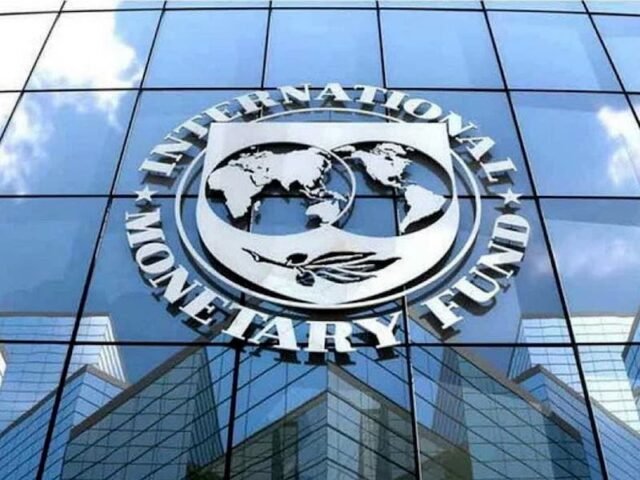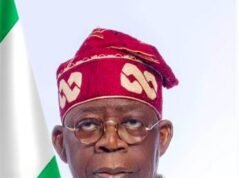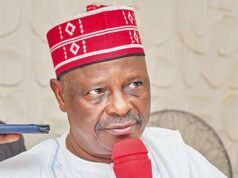Nigeria’s economic roadmap for 2025 is under renewed scrutiny after the International Monetary Fund (IMF) issued a clear and urgent call: Nigeria must recalibrate its 2025 budget amid oil price volatility. This recommendation comes as Nigeria, Africa’s leading oil exporter, faces a reality check—global crude is trading around $68 per barrel, falling short of the $75 benchmark used in Abuja’s fiscal calculations.
Table of Contents
A Budget Built on Sand
2025’s ₦55 trillion federal budget was structured on bold assumptions: oil output pegged at 2 million barrels per day, with an anticipated price of $75 per barrel. In truth, current production levels hover near 1.5 mbpd, and crude is trading significantly lower, leaving a yawning gap between expectation and reality.
The mismatch isn’t trivial. Revenue shortfalls could swell Nigeria’s fiscal deficit to around 4.7% of GDP—up from the targeted 4.1%—placing fiscal strain on public finances late in the year.
IMF’s Message: Adapt and Guard Against Shocks
In its flagship “Article IV” assessment, the IMF praised recent bold reforms—most notably, the removal of fuel subsidies, cessation of deficit monetisation by the Central Bank, and liberalisation of exchange rates. These moves have stabilised the macroeconomic environment and buoyed investor confidence. Still, the Fund warned that Nigeria remains vulnerable to external shocks, especially repeated dips in oil prices or tightening global financial conditions.
IMF Mission Chief Axel Schimmelpfennig highlighted the precarious external environment and asked policymakers to build buffers, encompassing both fiscal prudence and social safety nets.
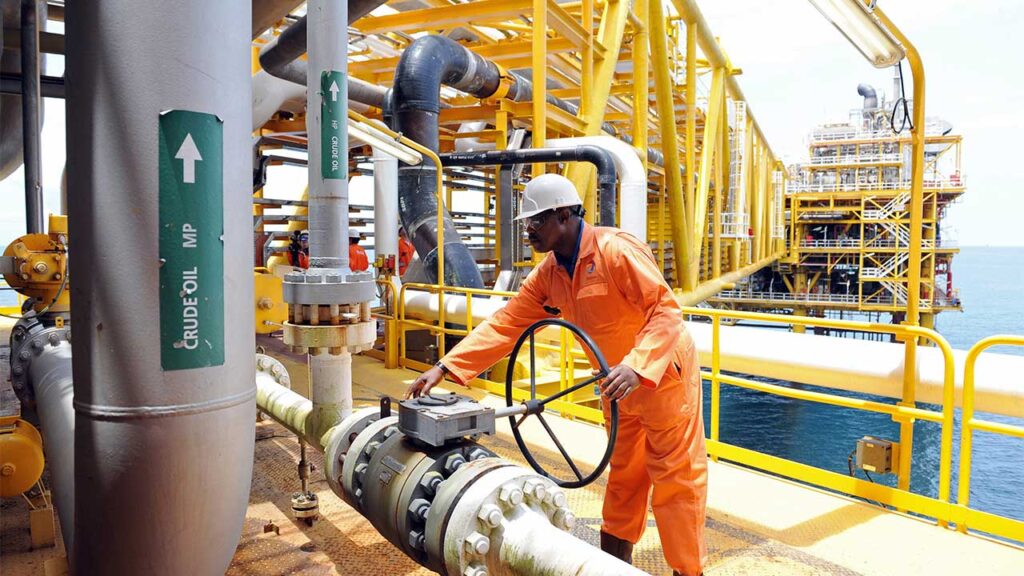
Growth on Solid Footing, But Per Capita Gains Limited
Headline GDP growth looks respectable: 3.4% projected for 2025 and 3.2% for 2026. Still, this masks a subtler reality: per capita growth lags behind, weakening efforts to reduce poverty and improve living standards.
Inflation, though eased, remains high, hovering around 23–24% in April and May 2025, down from a roughly 31% average in 2024. The IMF recommends that the Central Bank maintain a tight monetary policy with positive real interest rates to bring inflation closer to single digits.
The Social Dimension: Who Feels the Pain?
High inflation is squeezing household budgets, especially for the poorest Nigerians. The IMF emphasised that tackling food insecurity and entrenched poverty must be at the heart of the government’s fiscal strategy.
While Nigeria operates a cash‑transfer system (in place since 2007), it suffers from fragmented delivery and low penetration—only a fraction of the intended recipients are receiving sustained help, often due to a lack of reliable beneficiary data or banking access.
Fuel Subsidies: Costly and Transformative
The IMF underscored the significant fiscal gain from removing fuel subsidies—savings that could amount to roughly 2% of GDP. These funds can be rerouted into more effective public investment and social protections—if fully captured in the budget.
FX Stability: Reform That Earned Praise
Nigeria’s exchange rate market has undergone a transformative liberalisation. The IMF pointed to three key successes:
- Alignment of official and parallel exchange rates, reducing arbitrage opportunities.
- Improved access for investors, who can now repatriate profits more freely.
- Stronger foreign reserves, thanks to reforms and a supportive current account.
However, the Fund cautioned that Nigeria lacks depth in its FX markets, leaving them vulnerable to short-term capital flow swings. It encouraged that exchange‑rate flexibility be maintained, with carefully calibrated interventions to reduce volatility.
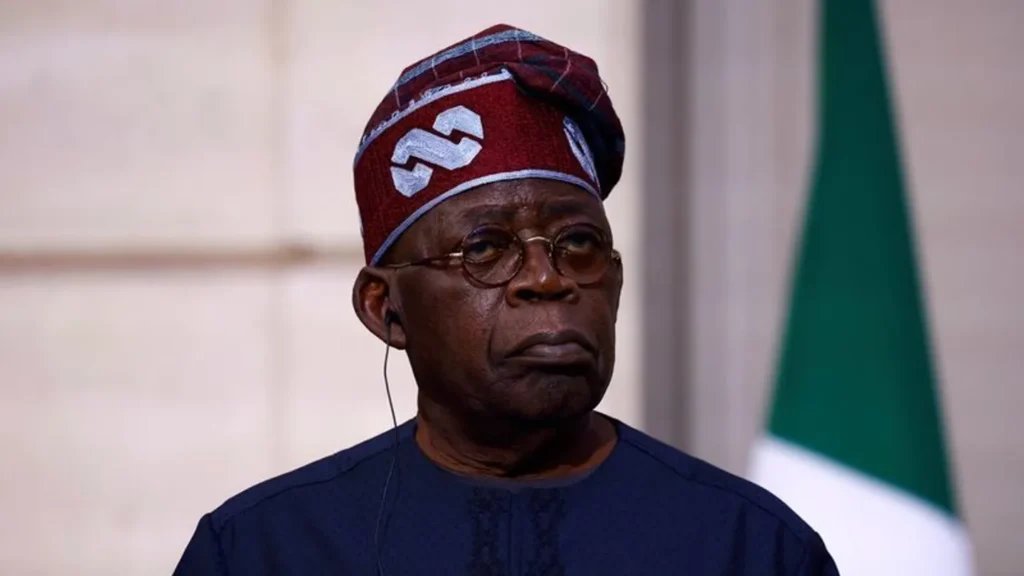
The Path Forward: Neutral Fiscal Policy and Prioritisation
The IMF outlined a strategic approach for recalibrating the budget under uncertainty:
- Adopt a neutral fiscal stance, meaning the deficit remains at 2024 levels, but rebalanced to reflect realistic oil revenues.
- Prioritise spending: Capital expenditures should be limited to projects with the highest growth and employment impact.
- Redirect subsidy savings to fund expansions of cash‑transfer schemes and other social protections.
- Intensify revenue efforts: Exploit gains from subsidy removal and administrative reforms, while holding off on broad-based VAT increases until social transfer coverage is sufficient.
- Strengthen budget mechanics, improve data systems, and focus on execution quality over headline allocations.
Beyond Rescue: Structural Enhancements
While macroeconomic housekeeping is essential, the IMF stressed that Nigeria’s long-term growth hinges on deeper structural reform:
- Expand credit access to the private sector and fintech startups.
- Bolster financial sector resilience by adopting Basel III standards and ensuring effective oversight.
- Improve data quality, particularly for targeting cash transfers and measuring economic activity.
- Accelerate non-oil sectors, especially agriculture, infrastructure, education, and power, priorities often stalled by security and red tape.
Government Responses So Far
Finance Minister Wale Edun welcomed the IMF’s findings, emphasising that authorities are working to “trim spending, boost revenue and preserve reform gains.” He believes adjustments already underway—like subsidy savings and revenue administration enhancements—will bring the budget back in line.
There is broad agreement in Abuja that a fiscal “re‑set” is underway, with officials focusing on more realistic assumptions and protecting vulnerable populations amid uncertainty.
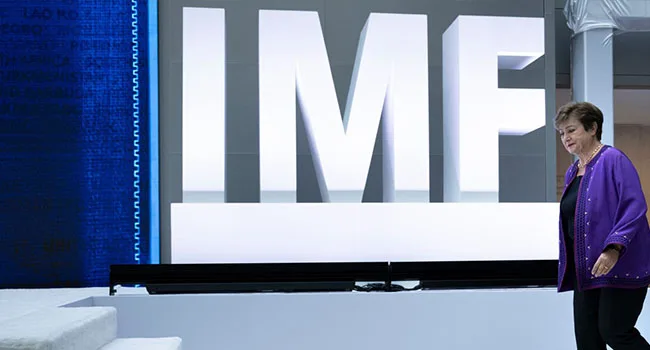
Final Thoughts: Navigating Uncertainty Wisely
In summary, the IMF’s appeal is direct and measured:
- Realign assumptions: Reflect realistic oil prices and production figures in budget projections.
- Maintain stability: Hold the fiscal deficit steady while preserving reforms that underpin monetary and FX stability.
- Protect the vulnerable: Use savings from reforms to expand social safety nets—a political and moral imperative in challenging times.
- Invest in the future: Continue structural reforms that foster diversification, inclusion, and long-term resilience.
If Nigeria can implement these measures—with transparency and consistency—it will have the tools to withstand renewed oil price shocks, tame inflation, maintain credit access, and support millions of Nigerians climbing out of poverty.
Join Our Social Media Channels:
WhatsApp: NaijaEyes
Facebook: NaijaEyes
Twitter: NaijaEyes
Instagram: NaijaEyes
TikTok: NaijaEyes


